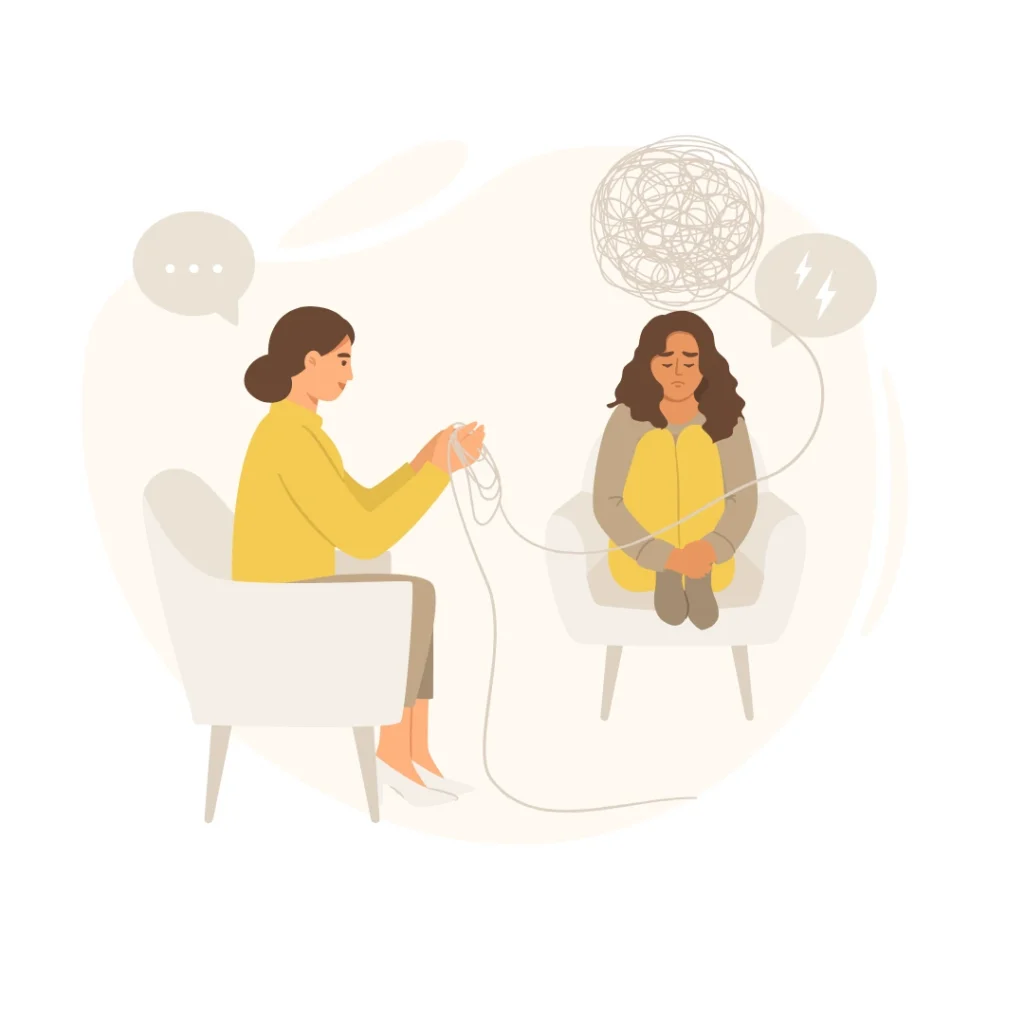
How Advanced Counseling Can Transform Student Mental Health
In today’s competitive and fast-paced world, mental health challenges are becoming increasingly common among students. These challenges go far beyond academic stress, encompassing issues like anxiety, depression, and trauma. Addressing these problems effectively requires more than basic counseling—advanced counseling techniques provide personalized and holistic approaches to help students manage and overcome mental health struggles.
This blog delves into the importance of mental health support for students, explains how advanced counseling works, and explores the specific methods that make it effective.
Mental health issues among students have surged in recent years. Reports suggest that nearly one in five young people experiences some form of mental health challenge. These problems are often driven by:
Academic stress: The constant pressure to perform well can lead to chronic stress and burnout.
Social challenges: Bullying, peer pressure, and social media comparisons intensify feelings of inadequacy and isolation.
Life transitions: Moving schools, leaving home for college, or navigating adolescence can be overwhelming.
Global events: Issues like pandemics, economic instability, and climate change add to the mental burden young people face.
Left unaddressed, these challenges can significantly impact academic performance, personal relationships, and long-term well-being.

Advanced counseling combines traditional therapy with innovative, evidence-based approaches tailored to each individual. Unlike general counseling, it takes a more in-depth, personalized approach to identify and address the root causes of mental health challenges.
Key elements of advanced counseling include:
Behavioral therapies: Techniques like Cognitive-Behavioral Therapy (CBT) help students identify and change unhelpful thought patterns.
Mindfulness and relaxation techniques: These foster emotional regulation and stress management.
Trauma-focused care: Approaches such as Eye Movement Desensitization and Reprocessing (EMDR) address the lasting effects of trauma.
Group support: Peer therapy sessions provide a sense of community and shared understanding.
Digital tools: Apps and online platforms offer resources for accessible, convenient mental health care.
Early Detection of Mental Health Issues
Advanced counseling methods include tools like psychological assessments and diagnostic interviews to identify mental health concerns at an early stage. Early intervention ensures that problems are addressed before they escalate, improving outcomes for students.
Tailored Approaches for Individual Needs
Every student’s mental health journey is unique. Advanced counseling develops personalized treatment plans based on the student’s specific challenges, personality, and background. For instance, a student dealing with test anxiety may benefit from CBT, while another facing grief might need trauma-informed therapy.
A Holistic Perspective
Rather than focusing solely on mental health symptoms, advanced counseling considers the broader picture, including the student’s physical, social, and emotional environment. This comprehensive approach may involve working with educators, families, and medical professionals to create a robust support system.
Empowering Emotional Intelligence
Advanced counseling helps students build emotional intelligence (EI), equipping them with skills like self-awareness, empathy, and effective communication. These abilities contribute to both improved mental health and better academic and social outcomes.
Enhancing Self-Regulation
Teaching self-regulation strategies is a cornerstone of advanced counseling. Through techniques like mindfulness meditation and relaxation exercises, students learn how to manage stress and respond to challenges constructively.
Cognitive-Behavioral Therapy (CBT)
CBT is widely used to address issues such as anxiety and negative thinking. It helps students reframe unhelpful thoughts into more constructive ones. For instance, a student struggling with perfectionism might learn to challenge beliefs like “I must be perfect to succeed” and replace them with healthier perspectives.
Mindfulness Practices
Mindfulness involves staying present and nonjudgmental in the moment. Techniques like deep breathing and guided imagery reduce stress, improve focus, and enhance emotional resilience.
Trauma-Informed Interventions
For students dealing with trauma, advanced counseling provides safe, structured methods to process difficult experiences. Techniques like EMDR can help students release emotional pain and regain control over their lives.
Creative Therapies
Art and music therapy allow students to express emotions in non-verbal ways, which can be particularly helpful for those uncomfortable with traditional talk therapy. These therapies offer a creative outlet for healing.
Group and Peer Support
Group counseling creates opportunities for students to connect with peers facing similar challenges. Sharing experiences fosters a sense of belonging and reduces feelings of isolation.
Technology-Enhanced Therapy
Digital tools like virtual reality (VR) and mental health apps make counseling more accessible, particularly for students in remote areas or those who prefer online interactions. VR therapy, for example, is being used to address phobias and anxiety in controlled settings.
Despite the benefits of counseling, many students hesitate to seek help due to stigma or lack of access. Advanced counseling aims to address these barriers by:
Normalizing mental health care: Schools and counselors can promote open conversations about mental health to reduce stigma.
Ensuring confidentiality: Students need to trust that their therapy sessions remain private.
Improving access: Offering flexible options such as virtual sessions or on-campus services makes counseling more accessible.
Educational institutions play a critical role in integrating advanced counseling into their mental health initiatives. Strategies they can implement include:
Training educators to recognize signs of mental distress.
Providing mental health services directly on campus.
Organizing awareness programs to reduce stigma.
Partnering with mental health professionals for referrals.
Overcoming Anxiety: A high school student battling severe test anxiety found relief through CBT and mindfulness exercises. These tools not only reduced their stress but also improved academic performance.
Coping with Loss: A college student struggling with grief after a family loss used art therapy and trauma counseling to process their emotions and regain focus on their studies.
Managing ADHD: An elementary student with ADHD developed better concentration and behavioral control through mindfulness practices and regular check-ins with a counselor.
Advanced counseling is a powerful tool for addressing the mental health challenges students face today. It goes beyond managing symptoms to provide tailored, holistic care that empowers students to thrive academically, emotionally, and socially.
As parents, educators, and communities, it’s our responsibility to prioritize mental health support and ensure students have access to these life-changing resources. By investing in advanced counseling, we can pave the way for a brighter, healthier future for young minds

2 Comments
How Can a CBT Course Help You Feel Better? - indiancounsellingservices.in
November 18, 2024[…] What Does a CBT Course Teach? […]
Mindful Focus: Simple Strategies for Mental Clarity - indiancounsellingservices.in
November 21, 2024[…] Actionable Ways to Build Mindful Focus […]